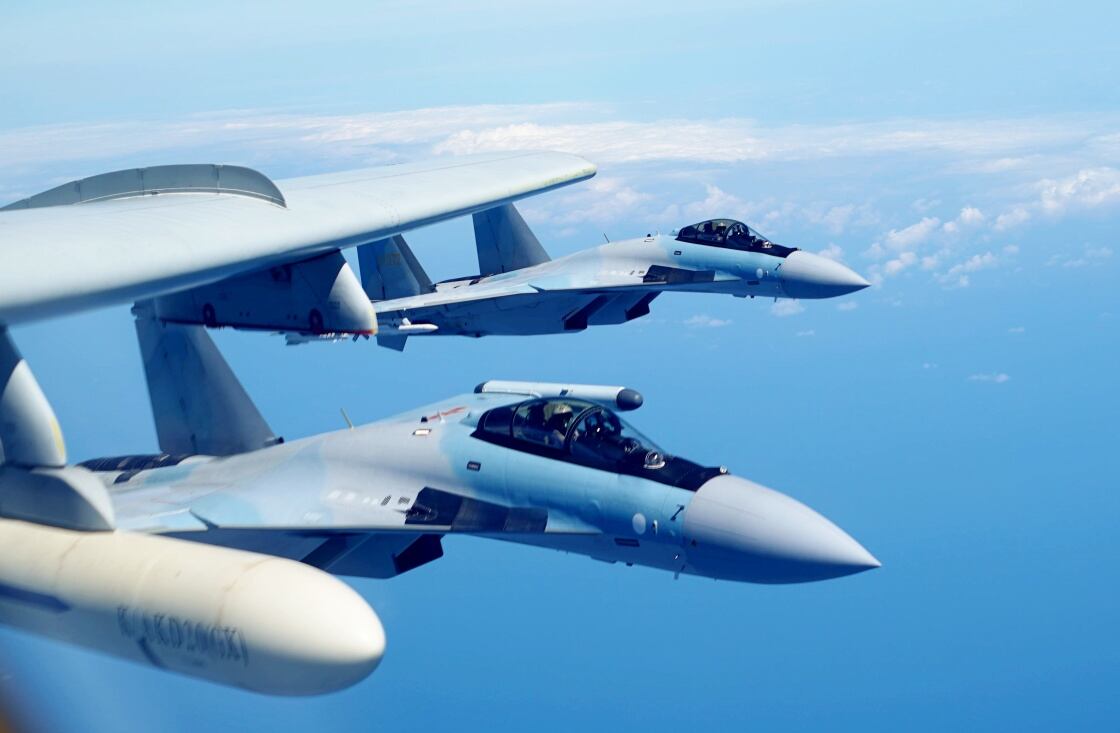SINGAPORE — The defense ministers of Japan and South Korea have articulated contrasting positions at a regional security conference on North Korea’s potential denuclearisation ahead of the planned summit between U.S. President Donald Trump and North Korean leader Kim Jong-un.
Speaking in Singapore at the annual Shangri-la Dialogue organized by the International Institute for Strategic Studies, Japanese Defense Minister Itsunori Onodera cautioned against rewarding North Korea for merely agreeing to a dialogue, emphasising that it must take concrete action to denuclearise and disarm first.
This would require the North to not only end all nuclear programs, but also the development of ballistic missiles “of all flight ranges,” which would include short range ballistic missiles capable of hitting Japan.
RELATED

Onodera cited historical precedents in his speech, reminding the audience that North Korea promised to abandon its nuclear weapons and its existing nuclear program in the 2005 Six-Party talks, but went ahead with its first nuclear test in 2006 and halted its ballistic missile launches only last year.
“We’ve seen history repeat when North Korea would declare to denuclearize, thereby portraying itself as conciliatory and forthcoming, only to turn around and avoid all international efforts towards peace”, he added.
Perhaps understandably, South Korean Defense Minister Song Young Moo adopted a softer line than his Japanese counterpart during his speech, noting that the recent round of diplomacy is a rare opportunity for success with Kim repeatedly stating his intent to “achieve complete denuclearization of the Korean Peninsula.”
He added during the question-and-answer session that North Korea’s history of duplicity should not be used to play down the hopes of a diplomatic breakthrough, saying that “just because we have been tricked by North Korea before does not guarantee we will be tricked in the future.”
Song did however also state that there must be complete, verifiable and irreversible dismantlement of the North’s nuclear weapons and program “and it must be enforced,” although he believed that Kim will accept such a move.
The disagreement on the approach in dealing with North Korea could potentially affect the scheduled June 12 summit between President Trump and Kim to be held in Singapore, and U.S. Secretary of Defense James Mattis held a trilateral meeting with his Japanese and South Korean counterparts on Sunday morning where he told them that both countries needed to maintain a strong defensive stance so they can negotiate with North Korea from a position of strength.

During his speech at Saturday’s plenary sessions, Mattis had stated that any discussion about the number of U.S. troops in South Korea is between it and the host country, and separate and distinct from the negotiations with the North, scotching suggestions that the U.S. would reduce or withdraw its military footprint on the Korean Peninsula should there be diplomatic progress with the North.
Mattis also said that any economic relief for North Korea will “receive relief only when it demonstrates verifiable and irreversible steps to denuclearization.” Speaking to reporters following the meeting, Onodera added that they also reached an agreement to work together to persuade North Korea to denuclearize, although he did not provide further details.
Mike Yeo is the Asia correspondent for Defense News.








